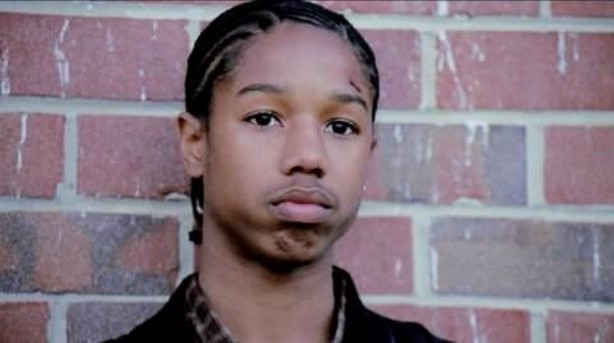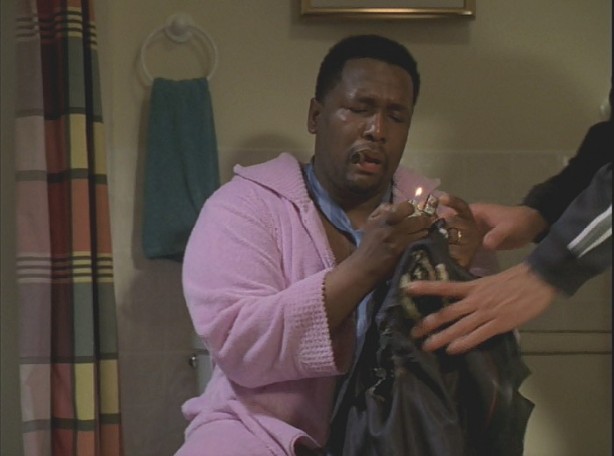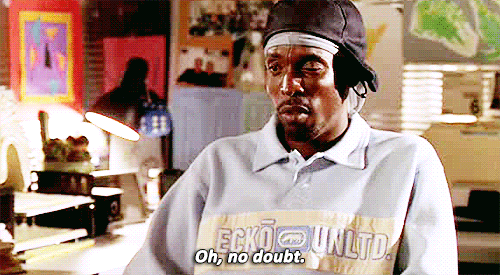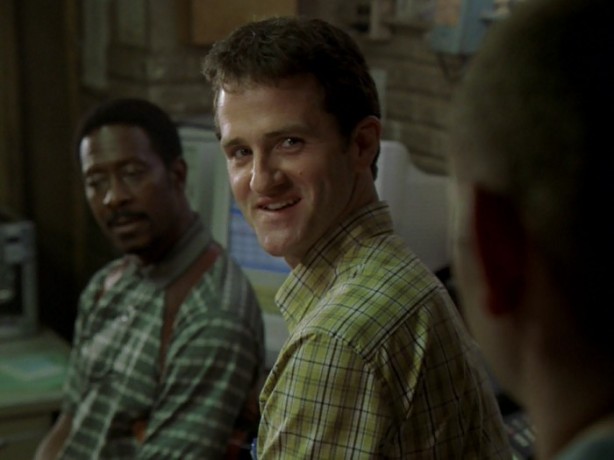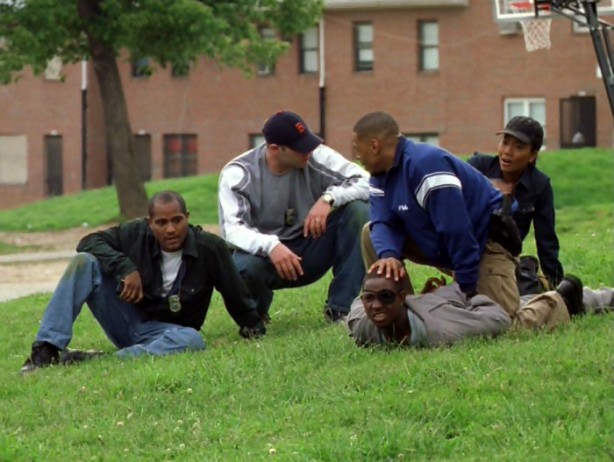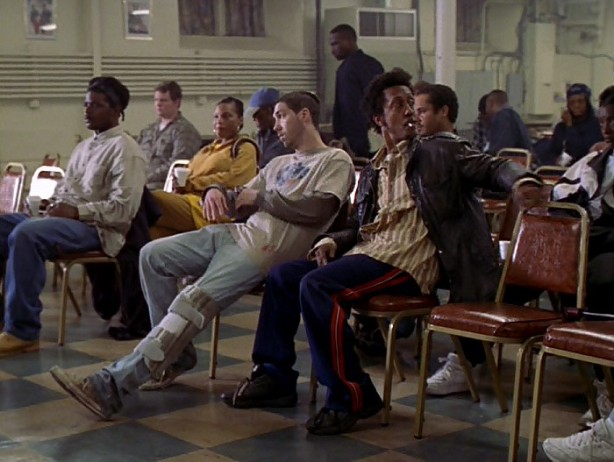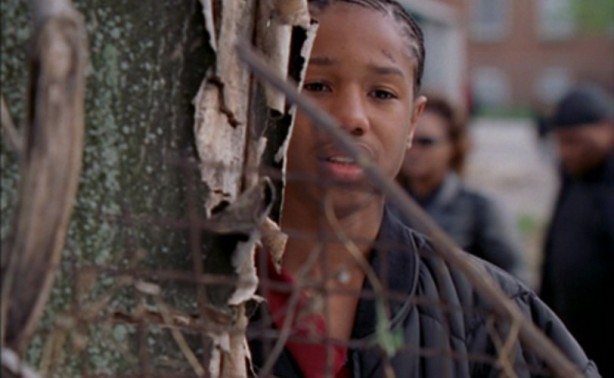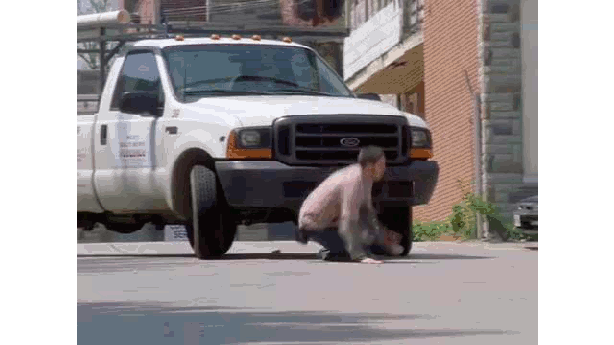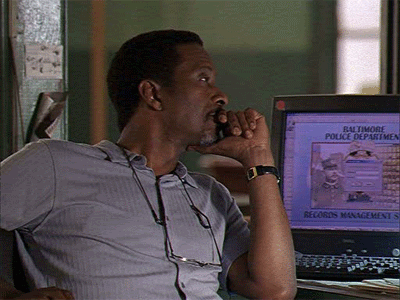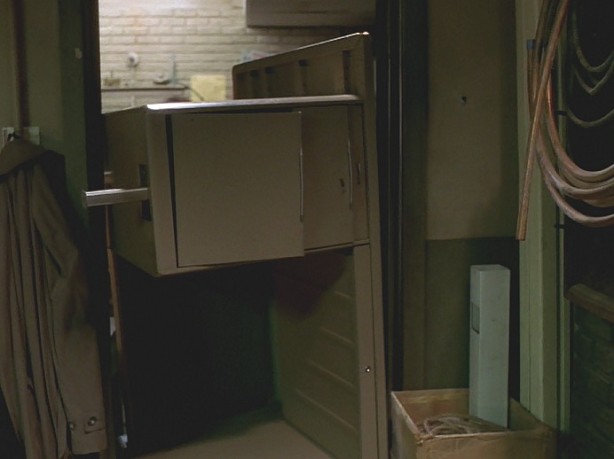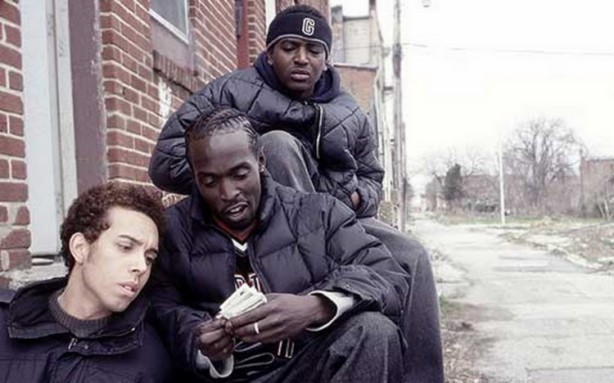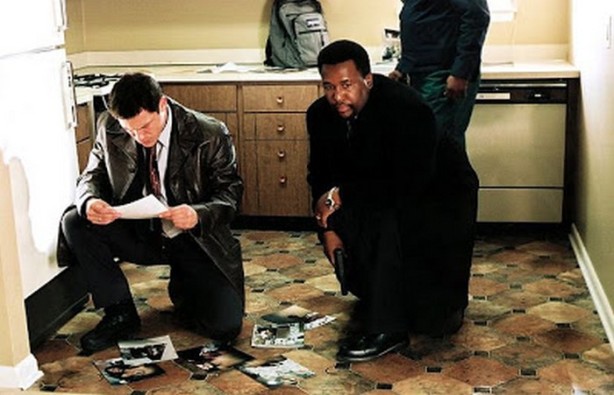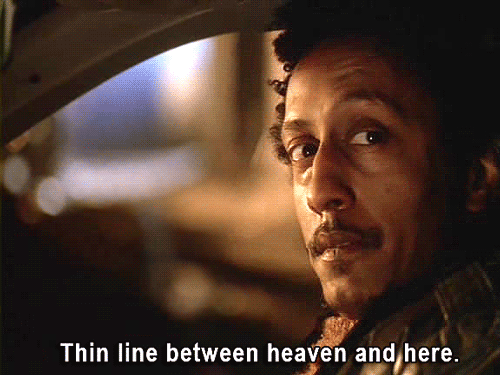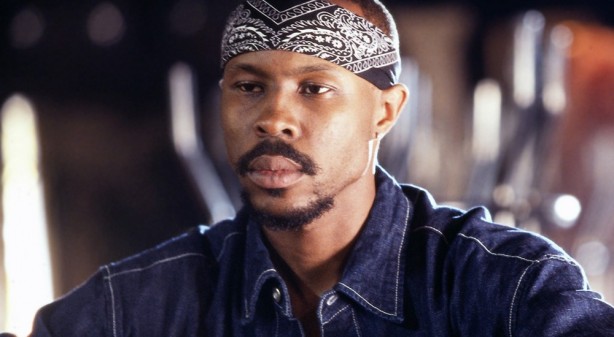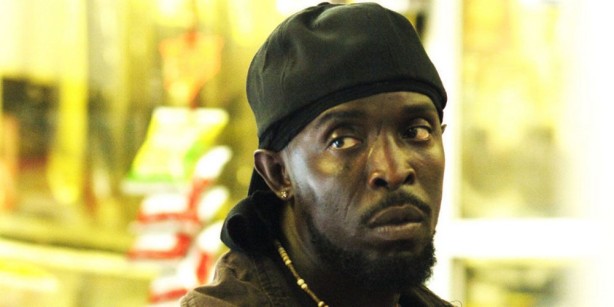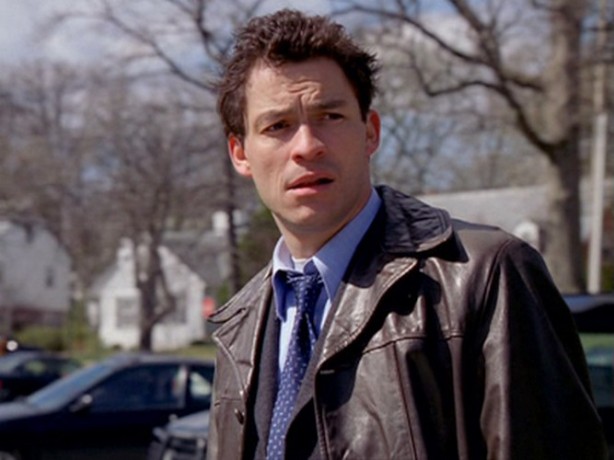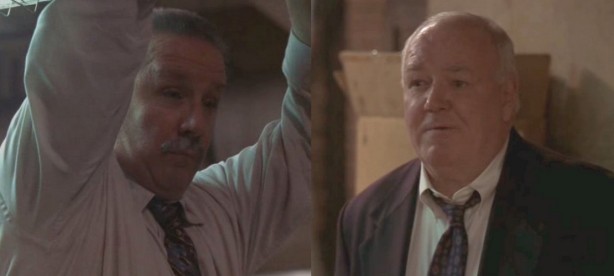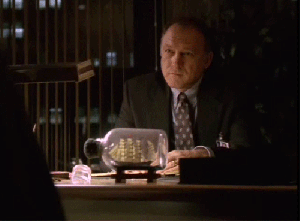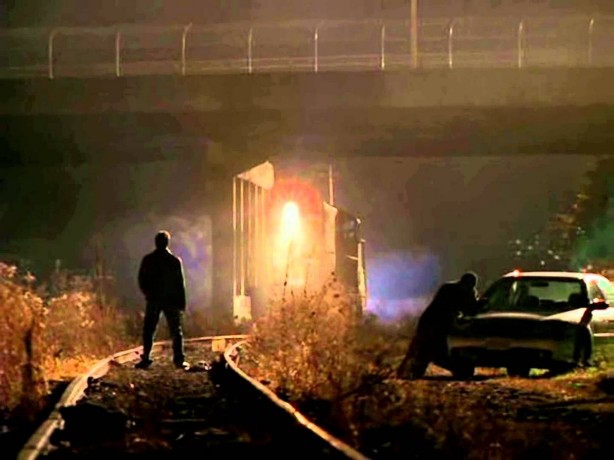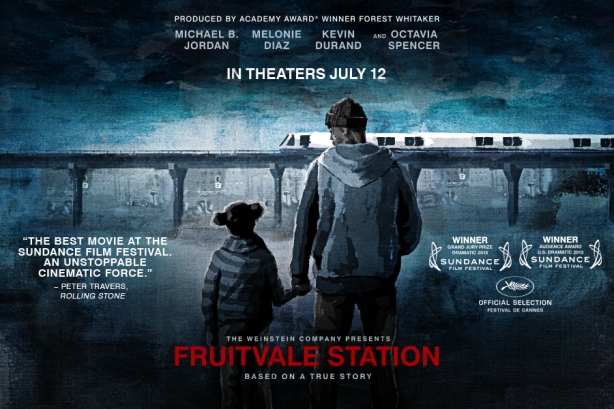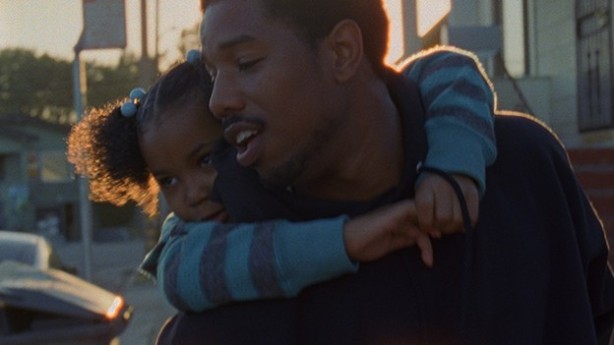
Game Day starts with an opener featuring Avon Barksdale and Stringer Bell securing a promising young basketball as their ringer for the East vs. West Baltimore Projects Basketball Game. It’s a brilliant idea that I imagine emerged from the real-life stories that serve as the inspiration for The Wire. While they are watching their ringer practice in the school gym, Stringer is still advocating for a truce with Omar—temporarily until he pops his head out so they can kill him. The struggle between Stringer and Avon is a struggle between business and the street. It is Stringer’s professional mentality opposing Avon’s desire to stay true to his roots as a gangsta.
In The Pit, D’Angelo meets with Wallace since he hasn’t been around to work. When pressed, all Wallace can manage out is that he doesn’t wanna play no more. In his mind, this game just got real. Wallace spotted the stick-up boy (Brandon), which got him killed. Then Stinkum just got dropped in the street. Wallace is just a kid.
If Wallace is accepted back into school, he would be 16 years old entering 9th grade. But with the odds against him, D’Angelo still advises Wallace to follow through and go back to school. D’Angelo sees the potential in Wallace and he knows Wallace has a good heart—unlike the rest of these street urchins who won’t amount to anything.
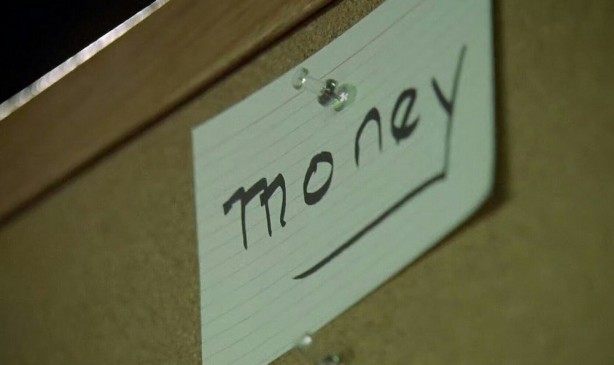
Meanwhile, the investigation (specifically Lester, Pryzbo, and Sydnor) starts to follow the money. Their mission reads like one of Lester’s wet dreams. In order to follow the money, Sydnor searches for any leads connecting to Barksdale and Pryzbo has to go down to the corporate charter office to look up the charter papers for those corporations or any LLC tied to Barksdale. Systematically, they are tasked with finding Avon’s storefronts and property holdings. While Sydnor and Pryzbo are buried nose-deep in paperwork, Lester is pulling the campaign finance reports for any citywide election to uncover the reach of Barksdale’s influence into the local political realm.
Checking in with our resident drug addict, Bubbles comes up with an ingenious plan to steal a drug dealer’s stash. Bubbles climbs up on top of a house with an overhead view of the drug runner listening to music and waiting for the next customer to step up. Bubbles uses a hook on a fishing line and dangles it over the bag while they aren’t paying any attention. Of course, someone steps up to buy so Bubs is caught as he’s stealing the stash, but he escapes while some innocent person is mistaken for the thief and they’re beaten mercilessly in the street. But the last laugh is on Bubbles because the stolen stash is baking soda. Such is life out on the streets.

The investigation is beginning to bear fruit when they take more money out of the hands of Barksdale’s operation. Herc even contemplates stealing part of the money from the stash they hit, but Carver wisely points out that leadership would know immediately. Naturally, this leads to Herc and Carv moronically losing two stacks, and Daniels calls them in his office to call them out for it. Despite not intentionally stealing the drug money, these doofuses still give the appearance of corruption and greed because the stacks fell out of the bag in their trunk before they could turn in their haul. Fortunately, Herc and Carver find the missing money after frantically searching their car.
Before the big community basketball game foreshadowed in the opening sequence, Omar is out doing Omar things on the streets. Y’know, menacing society. Regardless of the bounty on his head, Omar is still coming after Barksdale. When Omar literally huffs and puffs outside of a Barksdale stash house, their weak crew just drops the drugs out the window. Yes, Omar is the big fucking bad wolf. Never a dull day for Omar.
The rest of Balmer seemingly shows up to the East vs. West Baltimore Projects Basketball Game. Basically, this is a game of bragging rights between Prop Joe (East) and Avon (West). It’s a relatively friendly tradition. Avon gets a great dig in at Prop Joe for wearing a suit to look like a fat Pat Riley.
Avon: What’s up, playboy? How come you wearing that suit?
It’s 85 fucking degrees out here and you trying to be like Pat Riley.
Prop Joe: Look the part, be the part, motherfucker.
Avon: You walking around with a fake fucking clipboard.
You can’t even read a playbook. Be for real.
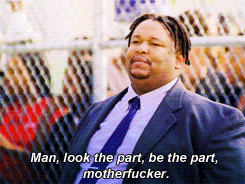
Almost everyone in the neighborhood shows up to the game—including the cops. This shit is for pride. The game also serves as an important introduction to Proposition Joe. When the Eastside is losing at halftime, Prop Joe offers Avon to double-down on the bet. Once Avon agrees, Joe wisely unleashes his secret ringer off the bench to crush the Westside. There’s also a foul on the final play, but poor unfortunate soul refereeing the game doesn’t make a call. Avon emasculates the guy who is only trying to do a job. Avon even has the audacity to say the guy should stand up for himself and never allow any old motherfucker to get in his face. Excuse me, Avon Barksdale is not just any old motherfucker. If that referee bucked up publicly to Avon, he would have been laid out right there on the court. Take your shit sandwich and eat it with a smile of appreciation, ref.
After suffering another humiliating loss in the annual basketball game, today doesn’t seem to be Avon’s day. Omar turns the Barksdale stash he stole over to Prop Joe in exchange for a number to contact Avon and a code for one of his people (Wee-Bey). Omar’s endgame is simple: he wants to kill Avon. Avon is always ultra-careful, but he’s vulnerable. When the call comes through, Avon treats himself like everyone else so he walks outside to the payphone. But it’s a fucking trap. Omar uses Avon’s carefulness to lure him outside. However, Wee-Bey comes back from his fast food run to save Avon at the very last second. As a result, Omar catches one in the shoulder, which forces him to flee and abort his assassination attempt on Avon.
Once again, Wee-Bey proves that he’s the only Bey that matters.
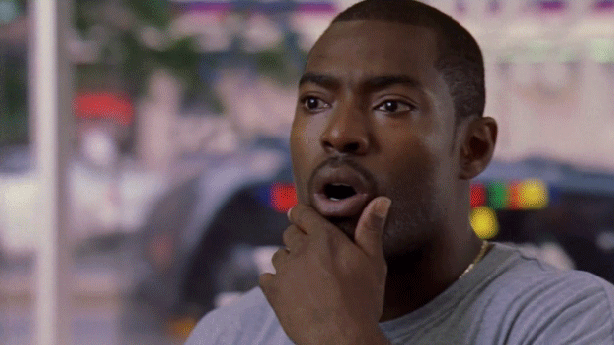
Quote of the Episode
“And here’s the rub: You follow drugs, you get drug addicts and drug dealers. But you start to follow the money, and you don’t know where the fuck it’s going to take you.”
– Lester Freamon

